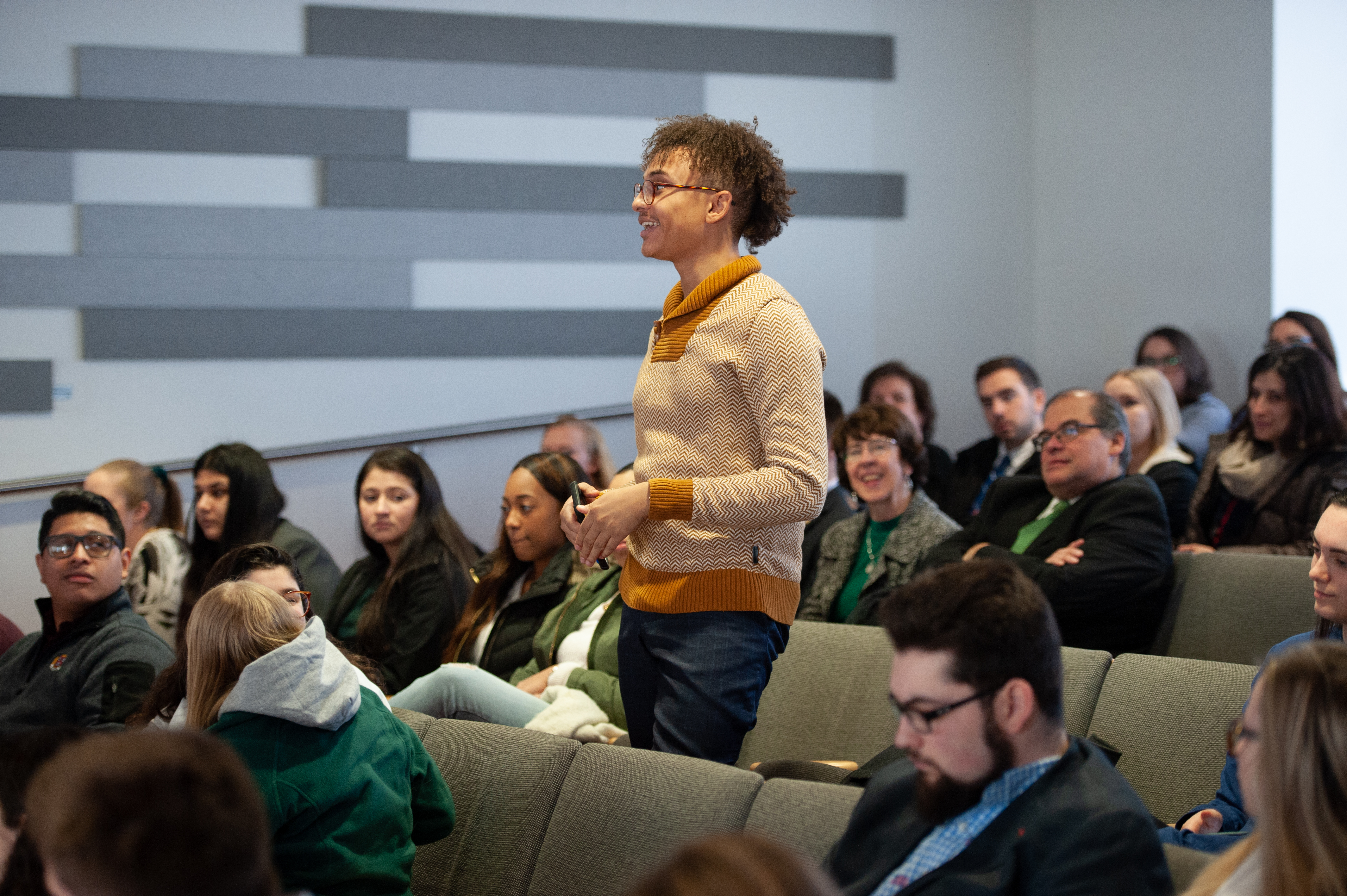
Goal #4
ENGAGE UNIVERSITY OF NEW HAVEN STUDENTS IN WAYS THAT PROVIDE PERSONAL AND PROFESSIONAL DEVELOPMENT OPPORTUNITIES TO SUPPORT THE FORMATION OF A FUTURE WORKFORCE THROUGH STRONG, INNOVATIVE YOUTH JUSTICE PROGRAMS
The Tow Youth Justice Institute will promote and provide opportunities for students to participate in internships, cooperative work experiences, volunteer opportunities, research, and student events.
The Tow Youth Justice Institute is committed to a future youth justice workforce that is enhanced by the passion and knowledge of our student graduates. Along with the new Juvenile Justice and Delinquency Prevention concentration, inducted in 2017, a range of experiential education programs are available to provide students with the hands-on experience to become strong, valued, dedicated, and most of all, passionate future workers committed to the children and families that comprise the youth justice system. This encompasses a variety of activities where students are actively engaged in the learning process, working closely with faculty and/or staff to deepen their understanding of a juvenile justice related topic and to build skills and competencies that lead to personal and professional success.
We promote and provide opportunities for students to participate in credit-bearing internships, cooperative education opportunities, faculty-mentored research, academic service learning, and experiential graduate assistantships. Our expectations are to 1) increase students’ knowledge on juvenile justice opportunities and careers within the Juvenile Justice field, 2) strengthen relationships between our existing community partners and the broader UNH campus community, 3) diversify existing University relationships so that they expand beyond the Probation and Department of Correction, and 4) become an information hub and resource for referrals for Juvenile Justice students to specific placements based on their interests.
Students participate in a structured campus leadership role, under direct guidance and mentorship from faculty or staff, to deliver on-campus or community-based programming, initiatives, or serve in a supervisory capacity over their peers. We will support and promote the new Juvenile Justice Club initiated by one of our student interns. It’s goals is to engage with local youth serving organizations, sponsor relevant panel discussions on campus and obtain leadership roles in the club to allow for the development of advocacy and reform promoting skills.
With the expertise of the Tow Youth Justice Institute and our Director of Research, faculty-member Dr. Danielle Cooper, we contributed to the expansion of a cutting-edge youth justice curriculum and learning opportunities for students. The new Juvenile Justice and Delinquency Prevention concentration was launched in the 2018 – 2019 academic school year. Two new JJ Courses, Exploring Delinquency and Seminar in Youth Justice) are being launched in 2019 – 2020 and the new Kalief Browder Course will be launched for any online student.
We provide resources to instructors teaching Juvenile Justice Systems, Working with CJ Clients, and Child and Family Interventions. We will support the adoption of High Impact Practices (HIP)—by offering academic service learning and writing intensive courses—into existing courses, such as Juvenile Justice Systems and Child and Family Interventions, over the course of the next three years. We are also looking to coordinate one Study Abroad Trip for JJ students during the 2020 – 2021 academic year.
Student Events further the knowledge base of youth justice and juvenile justice subject matter and reform efforts, statewide and nationally on campus, and the TYJI will be collaborators, supporters, sponsors/hosts of events, programs and conferences. This ongoing project will target audiences of students, faculty, staff, administration, stakeholders and the community. We will work with faculty, staff, advisors and student clubs/orgs for possible opportunities for collaboration on student’s events, as well as partner with the Myatt Center On Diversity, the Institute of Social Justice, and the Nonprofit Institute on campus.